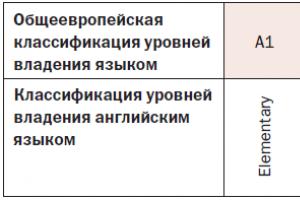Who has the right and on the basis of what documents to get acquainted with information about the health status of a patient in a medical institution, as well as to receive copies of documents containing such information?
Answer:1. In accordance with Part 1 of Art. 5 of the Federal Law of November 21, 2011 N 323-FZ “On the fundamentals of protecting the health of citizens in the Russian Federation” (hereinafter referred to as Law N 323-FZ), health protection measures must be carried out on the basis of recognition, respect and protection of the rights of citizens in accordance with generally recognized principles and norms of international law.
By virtue of Part 1 of Art. 13 Law N 323-FZ information about the fact of a citizen’s application for medical care, his state of health and diagnosis, other information obtained during his medical examination and treatment constitutes a medical secret. Medical confidentiality, by Decree of the President of the Russian Federation dated March 6, 1997 N 188, is included in the list of confidential information, access to which is limited in accordance with the Constitution of the Russian Federation and federal laws.
Disclosure of information constituting a medical secret, including after the death of a person, by persons to whom they became known during training, performance of labor, official, official and other duties, is not allowed (Part 2 of Article 13 of Law No. 323-FZ). In Part 3 of Art. 13 of Law N 323-FZ establishes that the communication of this information to other citizens, including officials, for the purposes of medical examination and treatment of the patient, conducting scientific research, their publication in scientific publications, use in the educational process and for other purposes is allowed only with consent of the patient himself or his legal representative *(1), except for the cases established in Part 4 of Art. 13 of Law No. 323-FZ. In this case, the patient's consent must be expressed in writing.
Let us note that provided for in Part 4 of Art. 13 of Law N 323-FZ, the list of cases of providing information constituting medical confidentiality without the consent of the patient or his legal representative is formulated by the legislator in an exhaustive manner and is not subject to broad interpretation. For example, the Chelyabinsk Regional Court recognized the refusal of a healthcare institution to provide information about a citizen’s health status at the request of a lawyer as lawful, since a lawyer’s request is not included in the list of grounds on which the provision of information constituting medical confidentiality is allowed without the consent of the citizen or his legal representative ( see the appeal ruling of the Investigative Committee for administrative cases of the Chelyabinsk Regional Court dated 08/04/2014 in case No. 11-7674/2014).
Consequently, in the absence of a legal basis, a medical organization does not have the right to transfer information about the patient’s health status to anyone without his written consent (consent of legal representatives), even if the patient’s relatives apply for such information. Similar provisions are enshrined in Order of the Ministry of Health and Social Development of the Russian Federation dated May 2, 2012 N 441n “On approval of the Procedure for issuing certificates and medical reports by medical organizations” (hereinafter referred to as Order N 441n). This conclusion is also confirmed by materials of judicial practice (see, for example, the ruling of the Leningrad Regional Court dated 02/05/2012 in case No. 33-626/2012, the appeal ruling of the Investigative Committee for civil cases of the Murmansk Regional Court dated 10/23/2013 in case No. 33-3584, appeal determination of the Investigative Committee for civil cases of the Supreme Court of the Republic of Tatarstan dated July 21, 2014 in case No. 33-9939/2014).
Only in the event of the death of a patient can his relatives receive a conclusion about the cause of his death and diagnosis (Part 5, Article 67 of Law No. 323-FZ, Clause 6 of Order No. 441n).
2. Federal Law No. 152-FZ of July 27, 2006 “On Personal Data” (hereinafter referred to as Law No. 152-FZ) does not allow the processing*(2) of information about a citizen’s health status without his consent. The peculiarity of personal data is that the subject of this data is most interested in their protection. That is why the general rule for processing personal data is the consent of the subject of this data to their processing. Any exception must be provided for by federal law. This is expressly stated in Art. 6 of Law No. 152-FZ. According to Art. 10 of Law N 152-FZ, the processing of special categories of personal data, including those relating to health status, is not permitted, except in cases where the subject of the personal data has given written consent to such processing.
Part 1 of Art. 9 of Law N 152-FZ determines that the subject of personal data decides to provide his personal data and consents to their processing freely, of his own free will and in his own interest. Such consent must be specific, informed and conscious. It can be given by a citizen or his representative in any form that allows confirmation of the fact of its receipt. If consent to the processing of personal data is received from a representative of the subject of personal data, then his authority is verified by the operator. In particular, the powers of a representative can be confirmed by a power of attorney (clause 1 of Article 185 of the Civil Code of the Russian Federation), an agreement (clause 4 of Article 185 of the Civil Code of the Russian Federation) or another document that will allow the content of the authority to be established.
In other words, Law No. 152-FZ also makes the possibility of processing personal data of hospital patients dependent on their consent. Without consent, data related to a citizen’s health status can be processed only in the cases listed in Part. 2, 3 tbsp. 10 of Law No. 152-FZ.
Thus, information about the patient’s health status can be communicated to the patient himself and his legal representatives. Such information can be provided to other persons, including relatives, only with the written consent of the patient, except for the cases provided for in Part 4 of Art. 13 Law No. 323-FZ, part. 2, 3 tbsp. 10 of Law No. 152-FZ.
The answer was prepared by:
Expert of the Legal Consulting Service GARANT
Glebov Valery
Response quality control:
Reviewer of the Legal Consulting Service GARANT
Amirova Larisa
*(1) Legal representatives are persons who are representatives of wards by virtue of the law. These are the parents (adoptive parents) of minors (Part 1 of Article 64 of the RF IC), guardians, trustees in relation to incompetent or not fully capable citizens (Clause 1 of Article 31, Article 32, 33, Clause 4 of Art. 35 of the Civil Code of the Russian Federation). The powers of parents and adoptive parents are confirmed by certificates issued by civil registry authorities: a birth certificate of a minor, an adoption certificate (Articles 23, 43 of the Federal Law of November 15, 1997 N 143-FZ “On Civil Status Acts”). The legal representation of guardians or trustees is confirmed by the relevant decision of the guardianship and trusteeship authorities and an identification document.
*(2) Processing of personal data means any actions (operations) with personal data, including distribution (including transfer) (clause 3, part 1, article 3 of Law No. 152-FZ).
Many citizens do not know what rights they have in the area of health protection. Characteristics of the fundamental rights of citizens. The right view on the safety of information not subject to disclosure. The patient’s right to information about his health and treatment methods is enshrined in the legislation of the Russian Federation.
In legal terms, the patient’s right to information includes:
- the duty of government bodies to create conditions for people so that they have the opportunity to familiarize themselves with documents relating to civil rights and freedoms;
- the right to freely use legal methods of collecting, transmitting and disseminating information;
- the right to know the state of the environment and, in the event of adverse health effects, to receive compensation for damage;
- responsibility of civil servants in case of concealment of factors that may pose a threat to human health.
If we consider the rights and obligations in the field of information about personal data, we can highlight the following:
- free receipt of information that affects information about another person only if this is part of the duties;
- obtaining information related to the processing of his personal data;
- clarification of a person’s personal data in cases where the information is out of date or is not provided in full.
Legislative acts that operate in the field of healthcare relations establish the following rights of people:
- the patient's right to information about health status;
- communicate information about your health status to other selected persons;
- have authorized access to information about your health that is available to a medical institution;
- obtaining accurate information necessary to take measures to maintain health.
The last point concerns general standards of possible danger from work, the environment in a populated area, and food safety.
 Information about permission to process your personal data must be provided only if there is such a request from appropriate persons having such authority.
Information about permission to process your personal data must be provided only if there is such a request from appropriate persons having such authority.
This document contains:
- a link to an identification document;
- information that confirms the legality and need to have access to personal data;
- signature and date of filling out the document.
A medical institution or insurance company may request permission to process personal data, for example, to draw up and enter into force a health insurance policy. All issues related to obtaining personal information about citizens are regulated by articles of the Law of the Russian Federation “On Personal Data”.
Citizens who go to the hospital have the right to receive information about their health status. Also, such information can be obtained by the attending physician, a representative of the insurer and the hospital. If a patient wants to exercise his right independently, he needs to know what options he has to do so.
Information rights include:
- familiarization with medical papers, extracts, certificates, tests that contain information about his health;
- consulting specialists;
- obtaining documents containing health information.
Cases when a doctor must inform a patient about his health:
- the patient chooses a specialist and a hospital;
- the patient's permission to perform the operation is required;
- during treatment and examination.
 According to the established rules, a person who has reached the age of fifteen can receive information. If treatment fails or results in the patient's death, the physician must inform close relatives (eg, husband, wife) about the health condition that led to this outcome.
According to the established rules, a person who has reached the age of fifteen can receive information. If treatment fails or results in the patient's death, the physician must inform close relatives (eg, husband, wife) about the health condition that led to this outcome.
Legislative acts define the following list of responsibilities of a medical institution:
- Informing by a representative of a medical institution about the activities of the organization, specialization, and level of qualifications of employees.
- Provide patients with accurate information about the care that was provided.
- Report what methods and methods were chosen for treatment.
- Inform patients of their right to receive assistance under the terms of their current insurance policy.
- Provide information about medicines, materials, and goods that will ensure a decent level of medical services and proper care.
The patient can also contact a hospital representative to find out the rules and conditions for the effective and safe use of products.
When a citizen is provided with free medical care, hospital staff must report:
- the procedure, rules and amount of services determined by the medical policy;
- a complete list of services that the organization provides;
- types of medical care provided;
- indicators of the quality of services provided to the patient.
These responsibilities are spelled out in the Law of the Russian Federation “On Compulsory Health Insurance” and the Law of the Russian Federation “On Health Protection”.
Insurance companies in the process of informing citizens
The patient must be accompanied and informed by a representative of the insurance company with which the citizen has entered into an agreement.
The law imposes the following obligations on the insurance company:
- inform about all rights and responsibilities when applying to a medical institution;
- provide a list of hospitals that provide assistance under a valid insurance contract in a given locality;
- inform what type of assistance the medical organization provides;
- about violations on the part of the hospital that were identified earlier.
Before concluding an agreement with an insurance company, you must carefully read the list of situations for which the policy is not provided.
When a citizen applies to a medical institution in order to receive paid care, a representative of the organization is obliged to inform him about the following points:

- Availability of the opportunity to receive the required assistance in the required amount.
- List of services that are provided for a fee.
- The procedure for depositing funds for services rendered.
- Conditions, methods, procedure for treatment.
- Information about the medical center personnel (education, qualifications, work experience).
- Medical center opening hours.
- Working hours of specialists who provide paid services.
- Information about the level of his health.
- Information about medications that will be used during treatment.
Information about medications includes: expiration date, description of cases of prohibited use and indications for use. When notifying the patient about his health condition, it is necessary to inform him of the results of the study and diagnosis.
Citizens have the right to contact a medical institution if there are the following grounds:
- the deadlines established by law for the provision of medical care or a specific service were violated;
- emergency assistance was not provided on time;
- documents were requested that were not required by law;
- it was refused to accept documents that, according to legislative norms, must be accepted for the provision of medical care;
- no medical care was provided;
- medical care was of poor quality;
- actions of specialists without compliance with current legislation;
- the patient is dissatisfied with the decision that was made regarding the provision of medical care;
- lack of attention, ethics, morally bad attitude of a specialist from a medical institution;
- requirements to pay for a service that is not included in the list of paid services.
 Applications received from citizens must be registered within one day. If the medical institution is not authorized to respond to the request, it needs to redirect the request to the appropriate authority. The applicant must also be informed about this. If a written application contains questions that can only be answered by other competent authorities, they must be sent copies of the application. The law establishes a twenty-day period for consideration and submission of a response. In cases where additional time is required to study materials or carry out certain actions, a response may be sent thirty days from the date of application. In this case, the applicant must be informed of the need for additional measures.
Applications received from citizens must be registered within one day. If the medical institution is not authorized to respond to the request, it needs to redirect the request to the appropriate authority. The applicant must also be informed about this. If a written application contains questions that can only be answered by other competent authorities, they must be sent copies of the application. The law establishes a twenty-day period for consideration and submission of a response. In cases where additional time is required to study materials or carry out certain actions, a response may be sent thirty days from the date of application. In this case, the applicant must be informed of the need for additional measures.
The application, which can be submitted if there are grounds, must contain the following information:
- introduction, name of the medical institution or personal data of the official;
- personal information about the applicant;
- contact details (phone, email);
- the address to which the written response will be sent;
- description of the stated requirements;
- painting and date of composition.
The applicant may attach supporting documents. He also has the right to send them to the organization’s email. When an appeal is submitted by a third party, confirmation of the relevance of his rights is required. To do this, you must issue a power of attorney. In addition, you must attach a document that proves your identity. All received requests must be accepted.
An appeal may not be accepted if it does not contain the following information:
- personal data of the applicant (full name);
- address.
Also, an appeal will not be accepted if it contains information about an upcoming illegal action. Such a document is sent to the departments of the Ministry of Internal Affairs.
Reasons for refusal may include the following factors:
- The text of the statement is impossible to read.
- The medical institution cannot give an answer, because this requires disclosing a secret.
- The appeal contains demands and questions to which the medical center has provided answers up to this point.
Another reason for refusing to accept documents will be the lack of papers that confirm the authority of the representative.
Responsibility
When a person is not aware of the course of treatment and his state of health, his expectations differ from reality. If you perform your duties properly, such situations may not arise. The law provides for sanctions against officials who fail to provide information.
Thus, if the population was not informed about the services and their costs, patients may demand a reduction in the amount of payment for the services provided. When a citizen enters into a contract for the provision of paid medical care, but it is not provided to him on time or the patient was not informed about medications and other related products for treatment, he can demand compensation for losses that were caused due to failure to fulfill the terms of the contract. He can also terminate the concluded contract and demand the return of the money that was deposited. If a representative of public hospitals did not notify the population about the operation of the free medical care program, this may lead to demands from citizens to compensate for the damage they received due to the lack of information. When a person is denied medical care, a specialist can be held administratively liable. In certain cases, criminal liability may arise.
Case studies
Citizen Miroshnik A.V. filed a statement with the court. She stated that the medical institution transmitted information about her illnesses to the social protection authorities and now this is a problem for her. The woman did not provide permission to disseminate the information. During the court hearing, hospital representatives explained this by saying that they were concerned about the health of the plaintiff and her unborn baby. They used all methods and were for truthfulness. The hospital nurse believes they were doing their job. After hearing the parties and considering the evidence, the court granted the claims.
Everyone has the right to receive, in a form accessible to him, information available in a medical organization about the state of his health, including information about the results of a medical examination, the presence of a disease, the established diagnosis and prognosis for the development of the disease, methods of providing medical care, associated risks, possible types of medical intervention, its consequences and results of medical care (Article 22 of the Law of November 21, 2011 N 323-FZ).
For minor patients, the amount of information received is determined by age. The age before which such information is provided only to legal representatives, and after which - exclusively to the patient himself, is 15 years (for drug addicts - 16 years).
Reference. Legal representative
Legal representatives include parents, adoptive parents, guardians, trustees, guardianship and trusteeship authorities, organizations in which incompetent (not fully capable) citizens are under supervision ( Art. Art. 26, 28, 32, 33, 35 of the Civil Code of the Russian Federation; Art. Art. 64, 123 RF IC; Art. Art. 7, 8 Law of April 24, 2008 N 48-FZ; Art. 39 Law of July 2, 1992 N 3185-1).
Information in case of unfavorable prognosis
In the event of an unfavorable prognosis for the development of the disease, information should be communicated in a sensitive form to the citizen and (or) his spouse or his close relatives (children, parents, adopted children, adoptive parents, siblings, grandchildren, grandparents), if the patient did not prohibit them from reporting this and (or) did not determine another person to whom such information should be transferred (Part 3 of Article 22 of Law No. 323-FZ). Thus, in the case of an unfavorable prognosis for the development of the disease, the doctor has the right, without asking the patient’s permission, to communicate information about his state of health to his relatives, and the only limitation may be the patient’s actively expressed prohibition on sharing such information with other people.
Access to medical records
The patient or his legal representative has the right to directly familiarize himself with medical documentation and receive advice from other specialists on the basis of such documentation (Part 4 of Article 22 of Law No. 323-FZ).
Familiarization with the original medical documentation reflecting the patient’s health status occurs during the working hours of the medical organization in the premises intended for such familiarization, based on a written request from the patient (or his legal representative), which is considered by the head of the medical organization or his deputy (clause 2 - Procedure, approved by Order of the Ministry of Health of Russia dated June 29, 2016 N 425n).
Also, on the basis of a written application, the patient or his legal representative has the right to receive medical documents reflecting the state of health, their copies and extracts from medical documents (Part 5 of Article 22 of Law No. 323-FZ).
Thus, the patient has an equal right to receive both originals and copies of medical records.
Since medical documents reflecting the patient’s health status, in addition to primary medical documentation on paper, also include the results of special medical studies (x-rays, computer and magnetic resonance imaging, ultrasound results, etc.), the right to receive these results (with taking into account the type of carrier of specific medical information) the patient also has. Thus, printed photographs, tomograms, video recordings of the operation and other similar research results, in our opinion, can be transferred to the patient upon his request.
Quite often situations arise when a patient needs to receive complete information from doctors about his treatment, written certificates, and test results. It is important to know that receiving such information is the inalienable right of every patient. Let's take a closer look at what this right is.
In accordance with Art. 22 of the Federal Law “On the Fundamentals of Protecting the Health of Citizens in the Russian Federation”, everyone has the right to receive, in an accessible form, information available from a medical organization about the state of their health, including information about the results of a medical examination, the presence of a disease, an established diagnosis and prognosis. diseases, methods of providing medical care, associated risks, possible types of medical intervention, its consequences and results of medical care.
Such information should be personally communicated to the patient by the attending physician and other medical professionals directly involved in treatment.
The patient or his legal representative has the right to directly familiarize himself with medical documentation and receive advice from other specialists on the basis of such documentation. However, to receive copies of medical documents and extracts from them, you need to write an application (in 2 copies, so that one of them is marked with an appointment number).
It is worth keeping in mind that the doctor is not obliged to provide information and issue certificates unless the patient directly asks for it. Also, this information cannot be communicated to the patient against his will.
If the patient has not yet reached the age of 15 years (16 years for drug addicts) or is declared incompetent, then the information is communicated to his legal representatives. The legal representatives of children are their parents, and for adult citizens, legal representatives can be appointed only if they are declared incompetent by the court. This means that doctors cannot disclose a patient's health information to relatives without the patient's prior consent.
The exception is when the prognosis for the development of the disease is unfavorable. In this case, the doctor must communicate information in a sensitive manner to the patient himself or his spouse, one of the close relatives (children, parents, adopted children, adoptive parents, siblings, grandchildren, grandparents). The patient has the right to prohibit informing relatives about his diagnosis and to choose another person to whom this information can be communicated.
In all other cases, medical confidentiality applies. Let’s take a closer look at what it includes (Article 13 of the Federal Law “On the fundamentals of protecting the health of citizens in the Russian Federation”).
Medical confidentiality consists of information about the fact that a citizen applied for medical care, his state of health and diagnosis, and other information obtained during his medical examination and treatment.
Disclosure of this information is unacceptable not only to doctors, but also to other persons to whom it became known during training, performance of labor, official, official and other duties.
With the written consent of the patient, this information may be disclosed for the purposes of medical examination and treatment of the patient, conducting scientific research, publishing it in scientific publications, using it in the educational process and for other purposes.
There are a number of exceptions. Thus, disclosure of information constituting medical confidentiality is permitted:
- for the purpose of conducting a medical examination and treatment of a citizen who, as a result of his condition, is unable to express his will, if medical intervention is necessary for emergency reasons to eliminate a threat to a person’s life and if his condition does not allow him to express his will or there are no legal representatives;
- when there is a threat of the spread of infectious diseases, mass poisonings and injuries;
- at the request of the bodies of inquiry and investigation, the court in connection with an investigation or trial, at the request of a body of the penal system in connection with the execution of a criminal penalty and monitoring the behavior of a conditionally convicted person, a convicted person in respect of whom the serving of a sentence is suspended, and persons released on parole;
- in the case of providing medical assistance to a minor to inform one of his parents or other legal representative (taking into account clause 2, part 2, article 20 of the Federal Law - cases of drug addiction);
- in order to inform internal affairs bodies about the admission of a patient in respect of whom there are reasonable grounds to believe that harm to his health was caused as a result of illegal actions;
- for the purpose of conducting a military medical examination at the request of military commissariats, personnel services and military medical (medical flight) commissions of federal executive authorities, in which federal law provides for military and equivalent service;
- for the purpose of investigating an industrial accident and occupational disease;
- when exchanging information by medical organizations, including those posted in medical information systems, for the purpose of providing medical care, taking into account the requirements of the legislation of the Russian Federation on personal data;
- for the purpose of accounting and control in the compulsory social insurance system;
- in order to monitor the quality and safety of medical activities in accordance with this Federal Law.
This list is exhaustive, and in other cases, violation of medical confidentiality is unacceptable.
By phone All-Russian free 24-hour hotline for cancer patients and their loved ones 8-800 100-0191 You can get legal advice on patient rights and other issues related to receiving medical care.
Anton Radus, legal consultant of the Clear Morning Project
Each patient has the right to make a choice in favor of a specific doctor and medical institution, agree or refuse medical intervention, receive therapeutic nutrition, and much more. All these rights are closely interconnected, but are impossible without one more important point – the patient’s right to information about his or her health status.
Very often there are cases when the patient needs to know as much information as possible about his treatment, examination results, written statements. It is necessary to understand that possession of this information is the legal right of every person.
Legal aspects
The current medical legislation, namely clause 5 of Art. 19 Federal Law No. 323-FZ dated November 21, 2011, gives everyone the right to own information materials that directly affect the health, rights and responsibilities of the patient, and also indicate the permissible persons to whom it should be disclosed.
Article 22 of the above law states that every patient has the right to receive truthful data about the state of his health, including the results of examinations, diagnosis and scenario for the development of the disease. In addition, the patient can know what treatments have been applied.
State authorities and organizations decreed by law, in turn, are obliged to convey to the population information about factors affecting health, both positively and negatively (Article 23). Among such information, one can highlight information about the state of the environment, nutrition standards and the quality of food consumed. products.
All these points regarding the provision of information must be followed properly and presented to the patient in an easily accessible manner. Not only doctors, but also responsible persons in medical institutions are obliged to participate in the popularization of knowledge, including those related to the right to information.
Application in practice
If the information concerns the rights and responsibilities of the patient, most often we are told only the first. Please be aware that any information listed above must be freely provided to the patient (representative). Everyone can familiarize themselves with medical documentation, as well as receive accessible explanations from the attending physician or other specialist involved in the process.
If it is necessary to receive written information, medical institution employees are required to provide copies. To do this, the patient (representative) must fill out an application for each of the parties, on one of which the health workers will endorse the incoming number.
In the case of an unfavorable prediction in the development of the disease, information about this should be communicated to the patient in a sensitive manner. The transfer of such information to his relative or representative is possible only if the patient has not prohibited this.
Important nuances
There are several important points to note regarding the provision of information to patients:
- the doctor should not provide information without the patient's request;
- informing is an integral part of the doctor’s work and is part of his responsibilities;
- any information cannot be disclosed without the patient’s consent.
Art. 13 Federal Law No. 323-FZ deals in detail with medical confidentiality. Within the framework of this topic, it is important for us that any information, starting from the initial arrival at a medical institution and ending with information obtained during direct treatment, is a medical secret. And its publicity is a gross violation of the law, provided that the patient has not given written permission to do so.
It often happens that patients have problems obtaining the necessary information and documentation in a medical institution. But this is so important, especially for those suffering from chronic diseases. If you encounter misunderstanding on the part of medical personnel or you have not been provided with the necessary information, be sure to make an appointment with the lawyers of the League for the Defense of Medical Law. Experienced lawyers will help you quickly get what you need!








